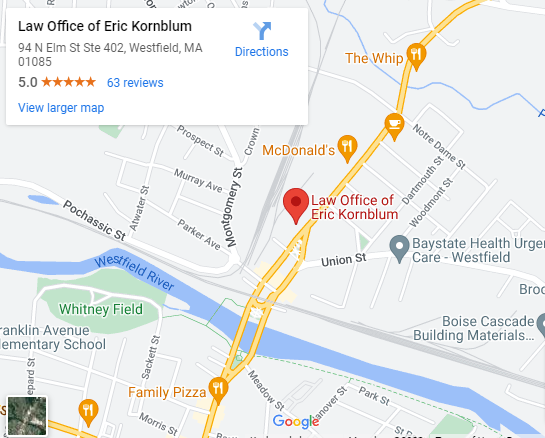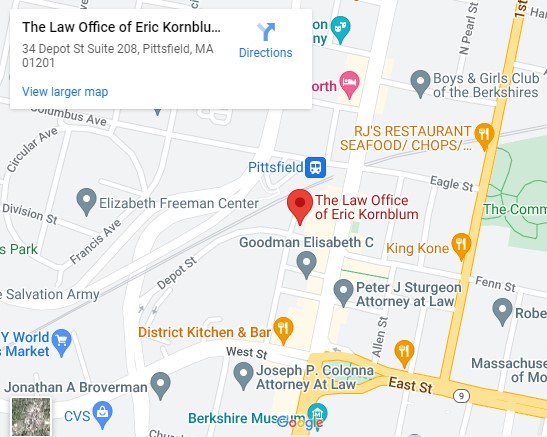A Guide for Financially Strained Borrowers
Having your car repossessed can be a stressful situation. If you live in Westfield, Massachusetts and are facing this challenge, you have options to get your car back.
This article will look at some of your options if you can’t pay your loan. These include catching up on missed payments, working out a new payment plan with the lender, and even filing for bankruptcy. It can be confusing, but knowing your rights and what you can do will help you decide what’s best for you.
Short Summary
- Repossession happens if you miss payments on your car loan as the lender can take the car back. That’s because they’re the owner until you finish paying everything off.
- Getting your car repossessed can have some serious financial and legal problems. You might lose your car, have to pay for towing and storage fees, and still owe money if the auction doesn’t bring in enough to cover what you owe on the loan.
- You have several options to try and get your car back. This includes paying off the loan or reinstating the loan. Buying it back at an auction, talking with the lender, or even thinking about bankruptcy are also viable solutions.
- Negotiating with the lender may include payment plans or getting waivers for any outstanding balances. You can also try setting up other agreements with them to get your car back and lighten your financial load.
- Bankruptcy, particularly Chapter 7 or Chapter 13, could be considered if you’re overwhelmed with debt. Chapter 7 might discharge certain debts, while Chapter 13 allows for a court-ordered repayment plan.
What is Car Repossession?
Car repossession happens when a lender takes back your car because you haven’t made your loan payments. This is because when you finance a car, the lender technically owns the vehicle until you pay off the entire loan. By missing payments, you’re considered in breach of the loan agreement, giving the lender the right to repossess the car.
What are the Consequences of Getting Your Car Repossessed?
In Massachusetts, car repossession occurs when a lender takes back your vehicle due to missed loan payments (Mass. Gen. Laws ch. 255B, § 13B). This can have significant financial and legal consequences. Not only do you lose access to your car, but you may also be responsible for towing and storage fees.
Additionally, the lender can sell the car at auction to recoup their losses. If the sale price falls short of your remaining loan balance, you’ll be liable for the “deficiency balance.” Acting quickly is crucial to explore options for getting your car back and minimizing the financial impact.
How to Get Your Car Out of Repossession?
Facing car repossession can be overwhelming, but there are options to retrieve your vehicle. Massachusetts law (Mass. Gen. Laws ch. 255B, § 13B) grants you some rights in this situation. Here’s a breakdown of possible approaches:
Redemption
Repaying your car loan in full can be the most straightforward way to get your car back after a repossession. Here’s a breakdown of the pros and cons to consider:
- Regain Ownership: This is the most obvious advantage. Once you settle the entire loan balance, including any late fees or repossession charges, the car’s title is transferred back to you. You regain full control and use of your vehicle.
- Large Sum Required: This can be a significant financial hurdle. You’ll need to come up with a lump sum payment that covers the remaining loan principal, accrued interest, and any extra fees associated with the repossession.
Before making a full payment, check with your lender about any prepayment penalties that might apply. These are fees charged for paying off the loan early, and can potentially eat into your available funds.
Loan Reinstatement (If Applicable)
If your car has been repossessed in Massachusetts, loan reinstatement might be a viable option to get it back. This process involves catching up on all your missed payments and any associated fees to bring your loan current. Here’s a breakdown of what it entails:
The Process of Reinstatement Your Loan
- Contact Your Lender: Massachusetts law only requires lenders to hold the repossessed vehicle for 21 days before selling it. The sooner you reach out, the more time you have to negotiate reinstatement.
- Discuss Reinstatement Terms: Inquire about the total amount needed to reinstate the loan. This will likely include:
-
-
- Missed Loan Payments
- Late Fees
- Repossession Costs
-
- Make the Payment: Once you have the total amount confirmed, gather the necessary funds to pay off the entire reinstatement balance.
Time is Crucial
Remember, the 21-day window is unforgiving. If you cannot come up with the reinstatement funds within that time frame, the lender has the legal right to sell your car at auction.
Repurchasing Your Car at Auction
In Massachusetts, if your repossessed car isn’t redeemed or reinstated within the 21-day window mandated by law (Mass. Gen. Laws ch. 255B, § 13B), the lender has the right to sell it at auction. While you have the legal right to bid on your own car, it’s crucial to understand the risks and potential benefits involved before taking this route.
Potential Benefits:
- If you can win the auction at a price lower than your remaining loan balance, you could potentially own the car again for a lower cost.
- If the car sells for more than your loan amount at auction, you wouldn’t be responsible for the remaining balance (deficiency balance).
Significant Risks:
- Bidding War: You’re not guaranteed to win the auction. There’s a chance other interested buyers might drive the price up, potentially exceeding the value of the car.
- Overspending: If you win the auction, you’ll be responsible for the full winning bid amount, which could be higher than what you owe on the loan. This could leave you financially worse off.
- Hidden Damage: Auctioned vehicles are typically sold “as-is.” This means you won’t have a chance to inspect the car for potential mechanical issues. You could end up buying a car with significant hidden problems that need expensive repairs.
Generally, repurchasing your car at auction is a risky proposition. It’s often better to explore other options like loan reinstatement or negotiation with your lender. Yet, if you decide to bid, do so cautiously and with a clear understanding of the potential consequences.
Negotiating with Your Lender
Facing car repossession can be stressful, but don’t lose hope. In Massachusetts, you have the right to communicate with your lender. You can explore options beyond repaying the entire loan balance (Mass. Gen. Laws ch. 255B, § 13B). Negotiation might be a viable path to get your car back and potentially ease your financial burden.
What Can You Negotiate?
Here are the following things you can negotiate with your lender:
- Repayment Plan: Discuss extending your loan term or lowering your monthly payments. This could make catching up on missed payments and keeping your car more manageable.
- Deficiency Waiver: If your car sells at auction for less than your loan balance, you’d be responsible for the remaining amount. Negotiating a deficiency waiver could end this debt.
Negotiation is not guaranteed. Lenders are not obligated to work with you, so it’s important to have realistic expectations. But, it doesn’t hurt to try.
Can I Consider Bankruptcy When Getting My Car Out of Repossession?
If you’re overwhelmed with debt and struggling to get your car back after repossession, bankruptcy might be an option. However, it’s a significant financial decision with lasting consequences. Here’s a brief overview of how Chapter 7 and Chapter 13 bankruptcy could help (Federal Bankruptcy Code – Title 11, U.S. Code).
Chapter 7 Bankruptcy:
- Debt Discharge: This type of bankruptcy eliminates certain unsecured debts, potentially including some car loan debt.
- Potential Benefit: If your car has already been sold or repossessed, Chapter 7 could eliminate the remaining loan balance (deficiency) you might owe.
However, take note that Chapter 7 doesn’t automatically return a repossessed car. Bankruptcy can significantly damage your credit score for several years.
Chapter 13 Bankruptcy:
- Repayment Plan: This chapter allows you to create a court-ordered repayment plan to manage your debts, potentially including your car loan.
- Potential Benefit: You might be able to catch up on missed payments and keep your car if the court approves your plan.
When considering Chapter 13, remember that not everyone qualifies for Chapter 13 bankruptcy. And with Chapter 13 bankruptcy, the repayment plan typically lasts 3-5 years, requiring strict adherence.
Remember, bankruptcy should be considered a last resort. It’s vital to weigh the potential benefits against the long-term financial implications.
Together with Our Bankruptcy Attorney, Let Us Help You in Getting Your Car Out of Repossession Now!
Facing car repossession can feel overwhelming, but you have options. Understanding your rights and exploring potential solutions is crucial. If you’re located in Westfield, Massachusetts, our experienced bankruptcy attorney at the Law Office of Eric Kornblum can provide valuable legal guidance tailored to your specific circumstances.
Our team can help you:
- Understand your rights regarding car repossession under Massachusetts law.
- Explore options for getting your car back, including loan reinstatement, negotiation with the lender, or even bankruptcy (if applicable).
- Determine the best course of action based on your financial situation and goals.
Contact the Law Office of Eric Kornblum today to schedule a conservation. With us by your side, we can empower you to make informed decisions about your path forward.
Aside from our law office in Westfield, we also provide solutions and legal services on bankruptcy in Springfield, Massachusetts.

 MA bankruptcy lawyer Eric Kornblum graduated from State University of New York, Binghamton in 1989 and received his law degree in 1992 at Western New England College, School of Law. Since opening his own practice, Eric has been dedicated to helping his clients resolve their financial problems both in and out of court.
MA bankruptcy lawyer Eric Kornblum graduated from State University of New York, Binghamton in 1989 and received his law degree in 1992 at Western New England College, School of Law. Since opening his own practice, Eric has been dedicated to helping his clients resolve their financial problems both in and out of court. 
